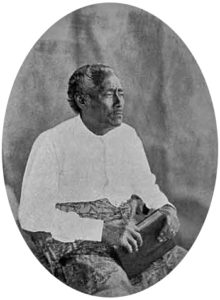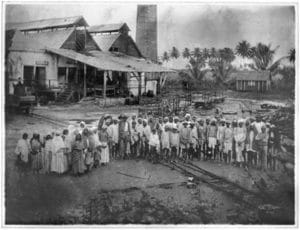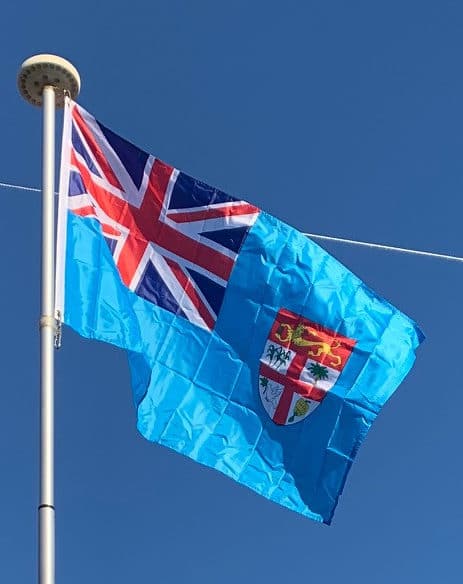
On 21 March 1874, Cakobau made a final offer, which the British accepted. On 23 September, Sir Hercules Robinson, soon to be appointed the British Governor of Fiji, arrived on HMS Dido and received Cakobau with a royal 21-gun salute. After some vacillation, Cakobau agreed to renounce his Tui Viti title, retaining the title of Vunivalu, or Protector. The formal cession took place on 10 October 1874, when Cakobau, Ma’afu, and some of the senior Chiefs of Fiji signed two copies of the Deed of Cession. Thus the Colony of Fiji was founded; 96 years of British rule followed. Several major rebellions occurred over the years, each brutally suppressed with British forces.
Indian Indenture System in Fiji:
Governor Gordon decided in 1878 to import indentured laborers from India to work on the sugarcane fields that had taken the place of the cotton plantations. The 463 Indians arrived on 14 May 1879 – the first of some 61,000 that were to come before the scheme ended in 1916.

The plan involved bringing the Indian workers to Fiji on a five-year contract, after which they could return to India at their own expense; if they chose to renew their contract for a second five-year term, they would be given the option of returning to India at the government’s expense, or remaining in Fiji. The great majority chose to stay. The Queensland Act, which regulated indentured labor in Queensland, was made law in Fiji also.
Between 1879 and 1916, tens of thousands of Indians moved to Fiji to work as indentured laborers, especially on sugarcane plantations.
Fiji in World War I and II:
Fiji was only peripherally involved in World War I. By the time of World War II, the United Kingdom had reversed its policy of not enlisting natives, and many thousands of Fijians volunteered for the Fiji Infantry Regiment, which was under the command of Ratu Sir Edward Cakobau, another greatgrandson of Seru Epenisa Cakobau. The regiment was attached to New Zealand and Australian army units during the war.

Because of its central location, Fiji was selected as a training base for the Allies. An airstrip was built at Nadi (later to become an international airport), and gun emplacements studded the coast. Fijians gained a reputation for bravery in the Solomon Islands campaign, with one war correspondent describing their ambush tactics as “death with velvet gloves”. Corporal Sefanaia Sukanaivalu, of Yucata, was posthumously awarded the Victoria Cross, as a result of his bravery in the Battle of Bougainville.
Responsible Government:
A constitutional conference was held in London in July 1965, to discuss constitutional changes with a view to introducing responsible government. Indo-Fijians, led by A. D. Patel, demanded the immediate introduction of full self-government, with a fully elected legislature, to be elected by universal suffrage on a common voters’ roll. These demands were vigorously rejected by the ethnic Fijian delegation, who still feared loss of control over native-owned land and resources should an Indo-Fijian dominated government come to power. The British made it clear, however, that they were determined to bring Fiji to self-government and eventual independence. Realizing that they had no choice, Fiji’s chiefs decided to negotiate for the best deal they could get.
